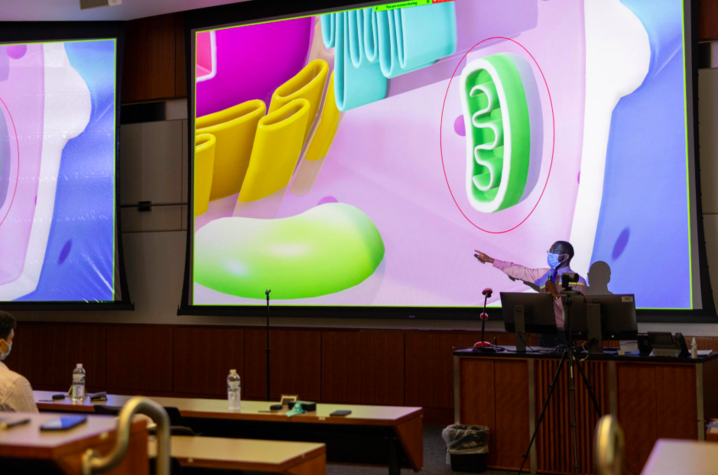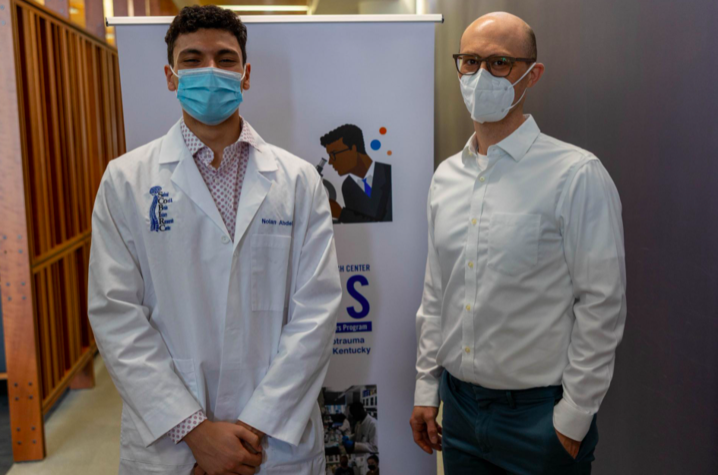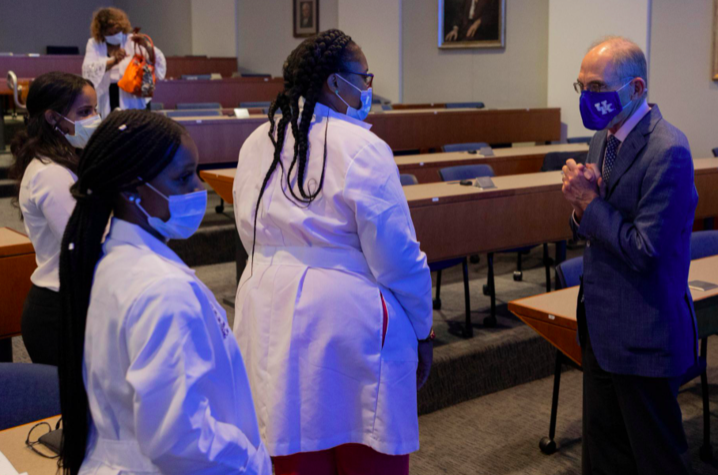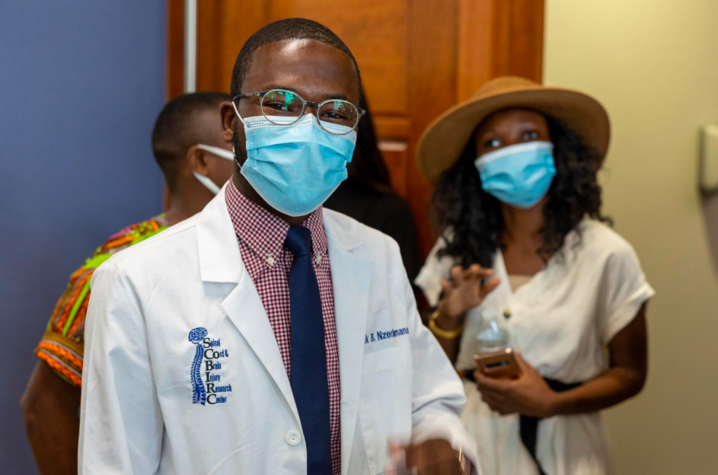African American Research Training Scholars Present Neuroscience Research at 1st Symposium
LEXINGTON, Ky. (Aug. 18, 2021) — The University of Kentucky Spinal Cord and Brain Injury Research Center (SCoBIRC) hosted a symposium last week featuring its first class of African American Research Training Scholars (AARTS).
The five scholars each gave a presentation on their research in neurotrauma.
“This scholarship program was established by support from the Kentucky Spinal Cord and Head Injury Research Trust to provide vital research opportunities for Black undergraduate students at the University of Kentucky,” said Joe Springer, professor and interim director of SCoBIRC. “This is part of the SCoBIRC’s continued efforts to promote diversity in neuroscience, a field in which Black and African American students and faculty are underrepresented nationwide. The goal is to provide students the opportunity to participate in state-of-the-art research and develop professional skills that will prepare them for the next steps in their careers.”
The AARTS program was developed by Springer along with Mark Prendergast, Warren Alilain and Zel Madison.
The AARTS program supports five students each year studying neuroscience in the UK College of Arts and Sciences. The $5,000 award covers a summer stipend and travel expenses to present at a national meeting. Each scholar conducts research in the laboratory of a faculty member studying brain or spinal cord injuries.
The scholars, their project names and their faculty mentors include:
- Nolan Abdelsayed — “Meningeal lymphatic Deregulation Following Traumatic Brain Injury” (Mentor: Adam Bachstetter)
- Jordon Burdette — “Cellular Regeneration in the Injured Spinal Cord” (Mentor: Warren Alilain)
- Urim Geleta — “MicroRNA-223 Modulates Inflammatory Signaling and Autophagy in Bone Marrow-Derived Macrophages” (Mentor: Joe Springer)
- Alexa Halliburton — “Considering Sex as a Biological Variable in Spinal Cord Injury Inflammation and Locomotor Recovery” (Mentor: John Gensel)
- Bisimwa “Jack” Nzerhumana — “Mitochondrial Uncoupling Promotes Energy Metabolism Following TBI” (Mentor: Pat Sullivan)
Students who are interested in learning more about the program, or applying to next year’s cohort, may visit https://scobirc.med.uky.edu/scobirc-scobirc-african-american-research-scholars-program.
As the state’s flagship, land-grant institution, the University of Kentucky exists to advance the Commonwealth. We do that by preparing the next generation of leaders — placing students at the heart of everything we do — and transforming the lives of Kentuckians through education, research and creative work, service and health care. We pride ourselves on being a catalyst for breakthroughs and a force for healing, a place where ingenuity unfolds. It's all made possible by our people — visionaries, disruptors and pioneers — who make up 200 academic programs, a $476.5 million research and development enterprise and a world-class medical center, all on one campus.








